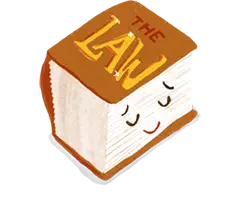Topic
Farming and fishing
This page contains different parts of laws about Farming and fishing, within the topic of Environment and resources.

Important laws about Farming and fishing
Conservation Act 1987
Plans to protect and manage fish and game for future generations
17L: Sports fish and game management plans
Conservation Act 1987
What Fish and Game Councils do to help manage fishing and hunting in New Zealand
26Q: Functions of Fish and Game Councils
Conservation Act 1987
What Fish and Game Councils have to do to help manage fishing and game in New Zealand
26R: Fish and Game Council responsibilities
Conservation Act 1987
When this part of the law applies to freshwater fishing
26ZG: Application of Part
Conservation Act 1987
Māori fishing rights stay the same, even with new laws
26ZH: Maori fishing rights unaffected by this Part
Conservation Act 1987
Rules to protect fish and fishing areas in New Zealand
26ZL: Restrictions on fishing
Conservation Act 1987
You can't sell or rent out the right to fish in freshwater, with some exceptions.
26ZN: Fishing rights not to be sold or let
Conservation Act 1987
People who own or rent land can fish there without a licence if they follow the rules.
26ZO: Occupier may fish without licence
Conservation Act 1987
Rules about when you can't fish for certain fish to help protect them
26ZP: Determination of closed seasons for fishing
Conservation Act 1987
Rules for fishing in New Zealand's freshwater areas
48A: Special regulations relating to freshwater fisheries
Conservation Act 1987
Rules to protect Māori fishing rights in South Island rivers and lakes
48B: Special regulations relating to South Island freshwater fisheries
Conservation Act 1987
Changes to other laws to help protect the environment
Schedule 3: Consequential amendments to regulations
More laws about Farming and fishing
About this project
What is this project?
This project is an experiment to take difficult language, and make it easier to read and understand for everyone.
How do we do this?
What's our process for taking the law and turning it into plain language?
Why is the law written like it is?
Laws are often hard to read. They use a lot of words and language we don't usually use when we talk.
Should we use AI for this?
What are the good and bad sides of using AI?
Is this information the actual law?
We hope that this information will help people understand New Zealand laws. But we think that it's important you talk to someone who understands the law well if you have questions or are worried about something.
You can talk to Community Law or Citizen's Advice Bureau about your rights.
Remember that AI can make mistakes, and just reading the law isn't enough to understand how it could be used in court.
You can talk to Community Law or Citizen's Advice Bureau about your rights.
Remember that AI can make mistakes, and just reading the law isn't enough to understand how it could be used in court.




